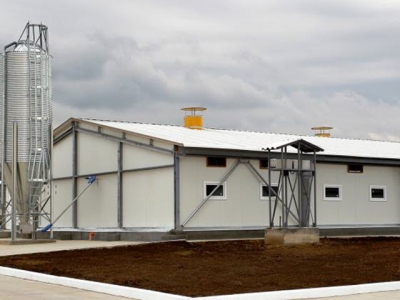Strep diagnosis in swine prompts renewed calls for biosecurity

Iowa State University confirms recent cases of slaughter sows and feeder pigs diagnosed with Streptococcus equi ssp zooepidemicus.
The Iowa State University Veterinary Diagnostic Lab has confirmed Streptococcus equi ssp zooepidemicus in two recent, potentially related cases of sows for slaughter and feeder pigs in assembly yards in the Midwest, according to information the Swine Health Information Center provided to the American Association of Swine Veterinarians.
The bacterial sepsis caused by the strep has resulted in high mortality rates, SHIC director Paul Sundberg said in the post.
VDL director of operations Rodger Main shared information on these unique cases with SHIC as well as the U.S. swine veterinary and pork industry stakeholder communities, Sundberg noted.
SHIC said it joins VDL in encouraging attention to farm and transport biosecurity, adequate cleaning and disinfection procedures, particularly of trucks and trailers interacting with markets and first points of concentration.
Prevention, diagnosis and possibly treatment also need the industry’s attention, should similar cases become evident in commercial swine herds, SHIC said. Both African swine fever and classical swine fever were ruled out during testing due to similar disease presentations — a necessary step in any further diagnostic work for suspected cases, SHIC noted.
As part of SHIC’s mission, it is offering support to further characterize the strep bacterium in the two cases from VDL to increase the understanding of its epidemiology.
Streptococcus equi ssp zooepidemicus is commonly found in nature, particularly in horses, and has been recently found in dog kennels as well, SHIC said, noting that cases have been confirmed recently in swine in western Canada. This, and any strep, has the potential to infect multiple species, including people.
Funded by America’s pork producers to protect and enhance the health of the U.S. swine herd, SHIC focuses its efforts on prevention, preparedness and response. As a conduit of information and research, SHIC encourages sharing of its publications and research for the benefit of swine health. SHIC material may be forwarded, reprinted and quoted freely.
Related news
 What factors affect sow colostrum yield and composition?
What factors affect sow colostrum yield and composition? Researchers, based in Finland and Estonia, have found that prolonged duration of farrowing can be detrimental for colostrum yield (CY).
 Finnish team evaluating optimal sow feeding strategies, how to cut farrowing time
Finnish team evaluating optimal sow feeding strategies, how to cut farrowing time Following the release of their findings on some of the factors affecting sow colostrum yield and composition, an academic team is now concentrating on studying
 Grease, copper additives may boost heat-stressed pigs' performance
Grease, copper additives may boost heat-stressed pigs' performance Adding choice white grease may improve weaned-pig feed efficiency during normal and heat-stressed conditions, while feeding supplemental copper may boost growth